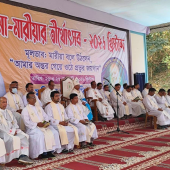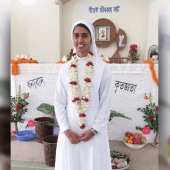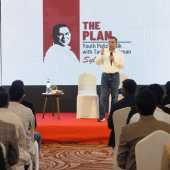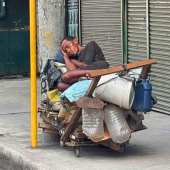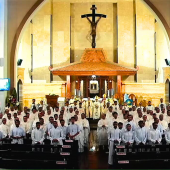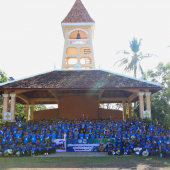Climate Change Fuels Child Labour and Modern Slavery in Coastal Bangladesh, Study Warns
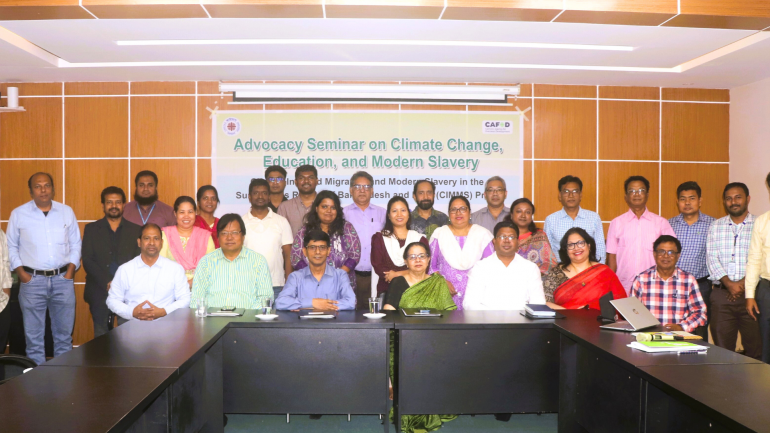
Climate change is not only eroding coastlines and livelihoods in Bangladesh’s southern belt but also pushing thousands of children into hazardous labour and modern slavery, according to a new study presented by Golam Maainuddin, Coordinator (Research) at Caritas Development Institute (CDI). The findings were shared during an advocacy seminar held in Dhaka on November 18.
The seminar, titled “Climate Change Impact on Child Education and Modern Slavery,” was organized by Caritas Bangladesh at the Caritas Development Institute. It brought together around 40 participants from government agencies, UN bodies, international and national NGOs, the media, people’s representatives, and community groups. Discussions focused on the study “Climate Change Impacts and Vulnerabilities on Children in the Sundarbans Region: A Study of Child Labor, Education, Health, and Coping Mechanisms.”
Prominent education activist Rasheda K. Chowdhury served as Chief Guest. Nitai Chandra Dey Sarkar, Director at the Department of Disaster Management under the Ministry of Disaster Management and Relief, attended as the Guest of Honour. Caritas Bangladesh Executive Director Daud Jibon Das moderated the session, with CDI Director Theophil Nokrek and Albino Nath, Regional Director of Caritas Khulna Region, also in attendance.
Chowdhury urged NGOs to work with the “4 Cs”- Commitment, Consistency, Coordination, and Collaboration, and reminded civil society to advocate with donors rather than depend solely on government support. “Policies change with governments, and funding shifts can leave thousands jobless. Over 20,000 NGO workers lost employment after the USAID withdrawal,” she noted. She stressed the human cost of climate change, adding, “Salinity, water scarcity, and disasters are forcing children out of school and into labour.”
Caritas’ Executive Director reaffirmed the organization’s commitment to addressing climate-induced vulnerabilities. “Caritas has long worked on climate change and its impacts. We will continue to respond to challenges affecting health, education, and modern slavery,” Das said.
Sharing field realities, Albino Nath described extreme hardship in the coastal belt. “Families rebuild homes 15 to 20 times in their lifetime. With no work for half the year, many sell land to migrate and end up trapped in debt bondage and modern slavery,” he said.
Voices from the ground further highlighted the crisis. Mollica Mridha from Shyamnagar said women and children suffer most during disasters, and trafficking increases after cyclones. A local union member, Nipa Chakraborty, stressed the need for ongoing awareness programmes.
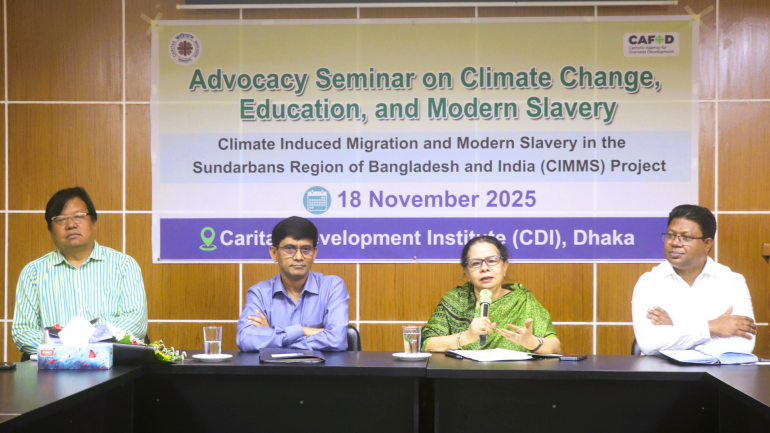
The study, conducted across six unions in Shyamnagar Upazila of Satkhira District, in southwest Bangladesh, reveals that climate shocks—salinity intrusion, cyclones, and floods are driving families into harmful coping strategies. Thirteen percent of children have dropped out of school, more than half engage in household production work, and over one-third in paid labour. Disasters disrupt schooling for an average of 64 days annually, pushing children into unsafe work such as brick kilns, fisheries, and domestic labour. “Climate change is not just an environmental crisis, it is a child rights crisis,” Maainuddin warned.
The study also found widespread modern slavery risks, with more than 90 percent of surveyed households taking loans and carrying an average unpaid debt of Tk. 58,782 (€411). These debts, combined with advance payments from recruiters, trap families in exploitative labour arrangements, particularly in shrimp farming and seafood processing.
The vulnerability index developed in the research identifies financial and physical weaknesses as the biggest obstacles to resilience, with communities highly exposed to climate shocks and forced migration.
Caritas Bangladesh concluded that addressing climate-induced child labour and modern slavery requires strong collaboration among government agencies, NGOs, and development partners. “Investment in human capital and climate-resilient education is essential to break this cycle,” Maainuddin emphasized.
As Bangladesh braces for rising seas and stronger storms, the message from the seminar was clear: climate change is reshaping childhood in the coastal belt, and urgent action is needed to protect the most vulnerable.
Radio Veritas Asia (RVA), a media platform of the Catholic Church, aims to share Christ. RVA started in 1969 as a continental Catholic radio station to serve Asian countries in their respective local language, thus earning the tag “the Voice of Asian Christianity.” Responding to the emerging context, RVA embraced media platforms to connect with the global Asian audience via its 21 language websites and various social media platforms.









